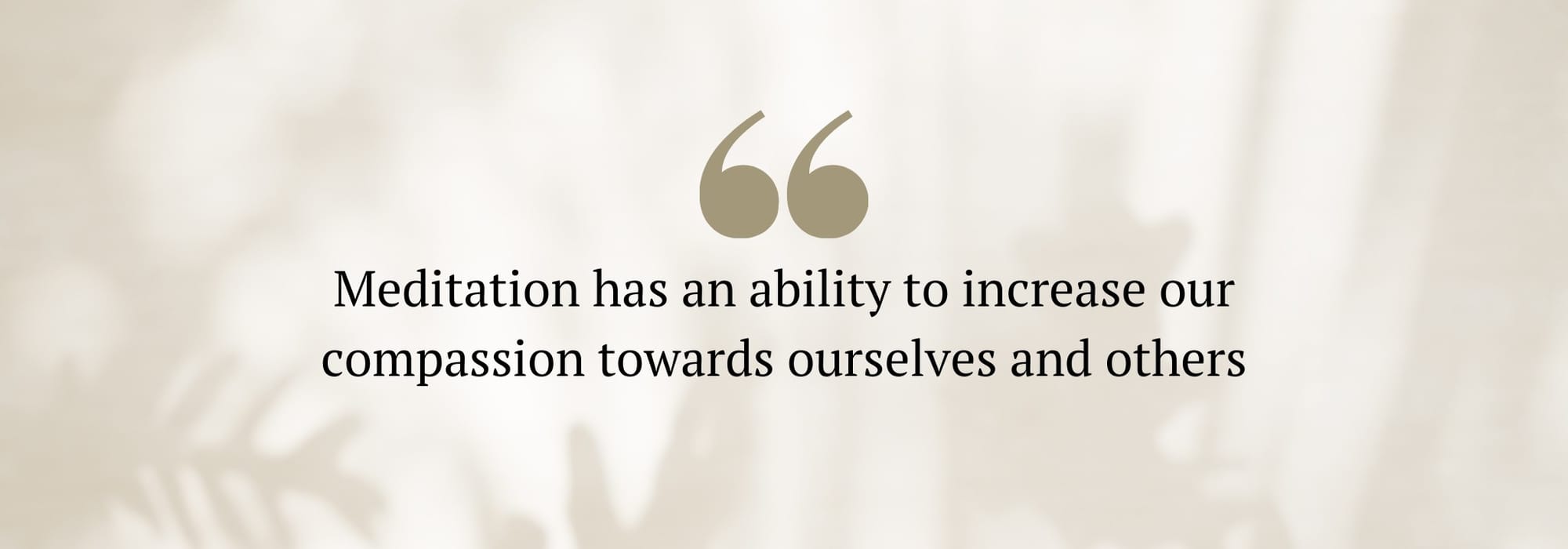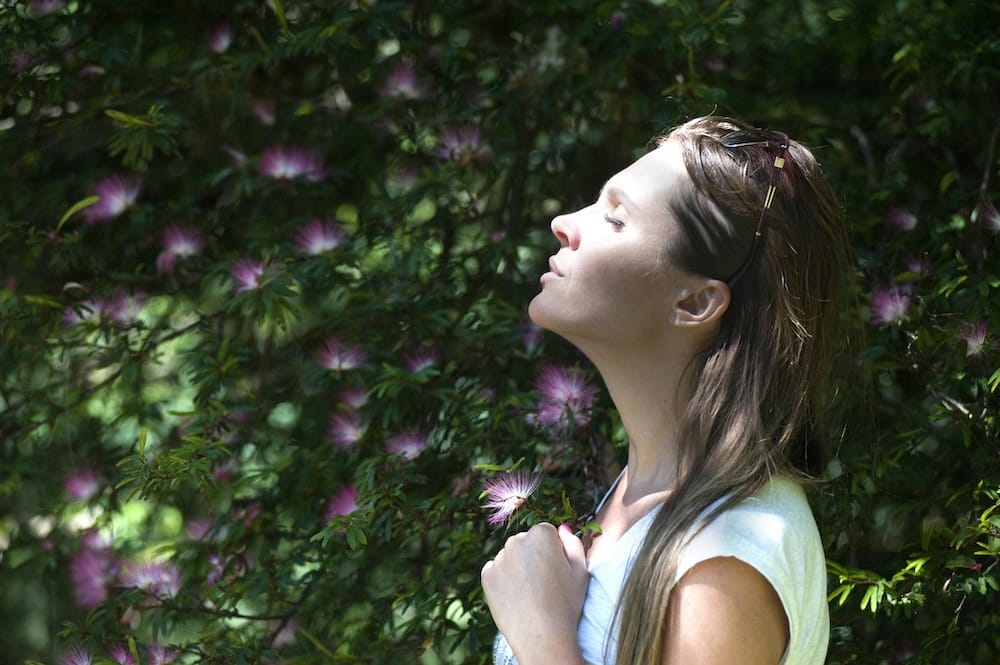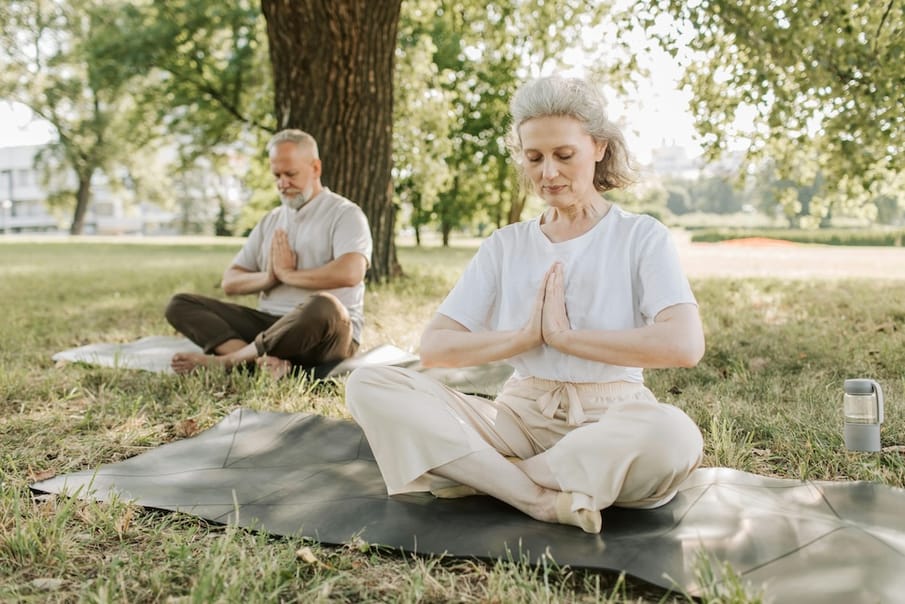With evidence showing the huge benefits of meditation, is it time you gave it a go?
In schools, workplaces, in classes, and at home, meditation and mindfulness are on the rise. Often heralded as a supportive solution to stress, anxiety, depression, and even physical pain, meditation has a lot to live up to – but more and more people are beginning to attest to its effectiveness.
The science
According to a US survey shared by the National Center for Complementary and Integrative Health, the number of adults who practise some form of meditation tripled between 2012 and 2017, from 4.1% of the population to 14.2%. So, what’s got so many people interested in meditation?
In one study, published in The Journal of Alternative and Complementary Medicine, which looked at nearly 1,300 adults, meditation was proven to be linked to a reduction in anxiety, with the effect being strongest in those who presented with the highest levels of anxiety. Another study, shared in the Journal of Occupational Health Psychology, also found a similar effect in employees who used a mindfulness meditation app for eight weeks – they went on to experience a decrease in job strain and distress, as well as improved overall wellbeing.
But decreasing stress and anxiety is just one factor. Research published in Frontiers in Human Neuroscience found that participants who listened to a meditation tape experienced improved attention, and a meta-analysis of 22 studies, published in the Journal of Consulting and Clinical Psychology, found that meditation has an ability to increase our compassion towards ourselves and others.
Setting your intention
Tempted to give it a go yourself? Starting out with meditation can feel intimidating, but it doesn’t have to be.
“Short, daily meditation can change our relationship to thoughts. This, in turn, reduces the overthinking that causes so much of our stress, leading to more clarity, focus, and calm,” explains Frances Trussell, hypnotherapist and mindfulness meditation teacher. “Becoming a meditator transformed my own life; before meditation, I’d had terrible anxiety and depression for as long as I could remember. That’s why I went on to become a teacher, and over the last decade, I’ve seen it improve the lives of thousands of people.
“Just like with physical exercise, we get far better results by doing a little consistently than a whole heap once in a while. However brief your meditation, by showing up daily you are setting a clear intention that you prioritise being present in your life, and taking care of your mental health.”

Giving it a go
To get a taste of what meditation has to offer, I set an intention for the week: 10 minutes of daily guided meditation each morning. Here’s what I learned...
-
The position doesn’t matter. Like me, you might have been under the impression that to meditate you had to sit crossed-legged on the floor, with a straight back and your hands resting on your knees. While I started out like this, by the third day I transitioned to lying down on my yoga mat. I was more comfortable this way, and better able to fully relax.
-
Not every guided meditation will be right for you. To find a recording, I turned to Spotify. At the start of the week, I shuffled through a couple of options, before landing on the ‘10-Minute Guided Meditation’ from Headspaces’ Meditation Made Simple collection. I was drawn to recordings that were warm and supportive, and less so to ones that felt overly formal. What works for you may be different, and figuring that out will help you find your match.
-
Small acts of self-care go a long way. If 10 minutes seems like a really short amount of time, it’s because it is. But what I found was that, even in such a small amount of time, I felt the effects. It was easy to slot in, and taking that time each morning to slow down, to connect with my thoughts and feelings, put me in a productive head space at the start of the day, and quickly became something I felt grateful for.
-
It gets easier. Even though I’m a regular at my local yoga studio, where meditation can sometimes come into practice, I did find the idea of meditation alone a little intimidating. But by allowing myself the freedom to explore it in a way that suits me (picking the position I was in, the recording I used, the length, and the time I did it) I found it easier to sink into each day – and it’s a habit I hope to keep.
Over to you
The first thing to consider when starting out with short, daily meditations is what you want from it. Is it relaxation? Or to improve self-compassion or confidence? Is it for sleep or healthy habits? Once you’ve figured that out, you can decide whether you want to find a guided meditation (in which case, searching on YouTube or Spotify for meditation on the theme you are interested in will bring up plenty of results). Or you may want to go your own way, and prefer to set a timer and focus only on your breathing.

Like me, start with just short sessions – 10 or even five minutes is a great place to begin. You can set a goal of how often you want to meditate, be it daily or a couple of times a week. Once you’re in the swing of things, you may wish to meditate for longer, or you may not – it’s your call. Get comfortable, in whatever way that is for you – you can even do your meditation on the move (go for a walk and sync your breath to the steps you’re taking) if that’s what suits you.
“Meditation can be intimidating when you first begin; we can have so many doubts around whether we are doing it ‘right’, and preconceptions about how it is supposed to feel,” Frances says. “If there’s one thing for sure, it’s that your mind will likely be busy and you’ll get distracted – this is just what the mind does. Don’t get put off by this, or get cross with yourself. It’s our job in meditation to simply pay attention to what is happening, without judging it, gently bringing the mind back to the object of the meditation (usually our breath or the body) when we notice we’ve got on a train of thought.”
Frances described each time we meditate as being like doing a rep at the gym, as we strengthen the neural pathways that bring our attention back to the present. “Ultimately, we don’t meditate to be good at meditation,” says Frances. “We meditate to get better at showing up for our lives – meditation is just the way we practise this.”
So, with a compelling list of evidenced benefits, and an entry point that’s accessible to all, the only question left is, why not?


Comments